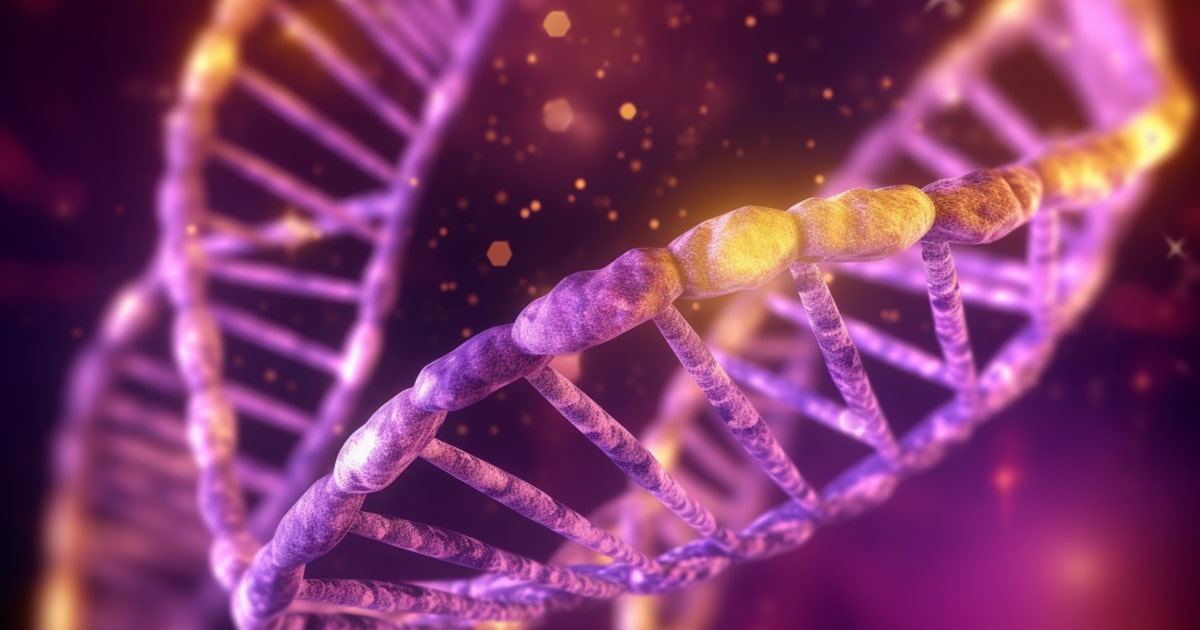
Expert Reviewed By: Dr. Brandon Colby MD
Lysosomal storage disorders (LSDs) are a group of inherited metabolic diseases characterized by an abnormality of lysosomal metabolism. These disorders result from deficiencies in the function of lysosomal enzymes, leading to the accumulation of undigested or partially digested molecules within the lysosomes. This accumulation disrupts cellular function and can lead to severe and life-threatening consequences. Early diagnosis and genetic testing play a crucial role in the management of these disorders and can significantly improve the quality of life for affected individuals.
Understanding Abnormality of Lysosomal Metabolism
Lysosomes are membrane-bound organelles found within cells that are responsible for breaking down and recycling cellular waste products, including proteins, lipids, and carbohydrates. In individuals with LSDs, the lysosomes are unable to properly break down these waste products due to defects in the enzymes responsible for this process. This leads to a buildup of toxic substances within the cells, which can cause a wide range of symptoms, including organ dysfunction, neurological problems, and developmental delays.
There are over 50 different LSDs, each caused by a deficiency in a specific lysosomal enzyme. Some of the more well-known LSDs include Gaucher disease, Fabry disease, and Pompe disease. The severity and symptoms of each disorder can vary greatly, depending on the specific enzyme deficiency and the amount of residual enzyme activity present in the affected individual.
Diagnosing Abnormality of Lysosomal Metabolism
Diagnosing LSDs can be challenging due to the wide range of symptoms and the rarity of these disorders. A combination of clinical evaluation, biochemical testing, and genetic testing is often necessary to confirm a diagnosis. Biochemical testing involves measuring the activity of the specific lysosomal enzyme in question, while genetic testing involves analyzing the individual's DNA to identify mutations in the gene responsible for producing the enzyme.
Genetic Testing for Lysosomal Storage Disorders
Genetic testing plays a crucial role in the diagnosis and management of LSDs. It can be used to:
- Confirm a diagnosis: Identifying the specific gene mutation responsible for an individual's enzyme deficiency can confirm a diagnosis of a particular LSD and help guide treatment decisions.
- Carrier testing: Genetic testing can be used to identify individuals who carry a mutation for a specific LSD, even if they do not exhibit any symptoms. This information can be important for family planning, as carriers have an increased risk of having a child with the disorder.
- Prenatal testing: Couples who are known carriers for an LSD can undergo prenatal testing to determine if their unborn child is affected by the disorder. This information can help families make informed decisions about the pregnancy and prepare for the potential challenges of raising a child with an LSD.
- Newborn screening: Some LSDs can be included in newborn screening programs, allowing for early identification and intervention before symptoms become severe.
Recent Advances in Lysosomal Storage Disorder Research
Researchers are continually working to better understand the underlying mechanisms of LSDs and develop new treatment approaches. Some recent advances in this field include:
- Chemical and genetic rescue of in vivo progranulin-deficient lysosomal and autophagic defects: This study links pgrn-1/GRN mutations to sphingolipid metabolism and autophagy in frontotemporal dementia, suggesting that restoring sphingolipid homeostasis may be a therapeutic approach.
- Angiokeratoma corporis diffusum with severe acroparesthesia, an endothelial abnormality, and inconspicuous genetic findings: This case report describes a patient with Fabry disease-like symptoms, endothelial abnormality, and unexplained vasculopathy not caused by Fabry disease or other lysosomal storage diseases.
- Defects in lysosomal function and lipid metabolism in human microglia harboring a TREM2 loss of function mutation: This study shows that a homozygous stop-gain TREM2 mutation in microglia leads to defects in lysosomal function, which can be restored by enhancing lysosomal biogenesis.
- Natural history and management of liver dysfunction in lysosomal storage disorders: This review outlines the natural history of liver dysfunction in lysosomal storage disorders, focusing on diagnosis, treatment, and management from a hepatologist's perspective.
In conclusion, understanding and diagnosing abnormalities of lysosomal metabolism is essential for the effective management of lysosomal storage disorders. Genetic testing plays a crucial role in this process, allowing for early intervention and improved outcomes for affected individuals. As research continues to advance our understanding of these disorders, new treatment options and strategies will continue to emerge, offering hope for those living with LSDs.
About The Expert Reviewer
Dr. Brandon Colby MD is a US physician specializing in the personalized prevention of disease through the use of genomic technologies. He’s an expert in genetic testing, genetic analysis, and precision medicine. Dr. Colby is also the Founder of and the author of Outsmart Your Genes.
Dr. Colby holds an MD from the Mount Sinai School of Medicine, an MBA from Stanford University’s Graduate School of Business, and a degree in Genetics with Honors from the University of Michigan. He is an Affiliate Specialist of the American College of Medical Genetics and Genomics (ACMG), an Associate of the American College of Preventive Medicine (ACPM), and a member of the National Society of Genetic Counselors (NSGC)